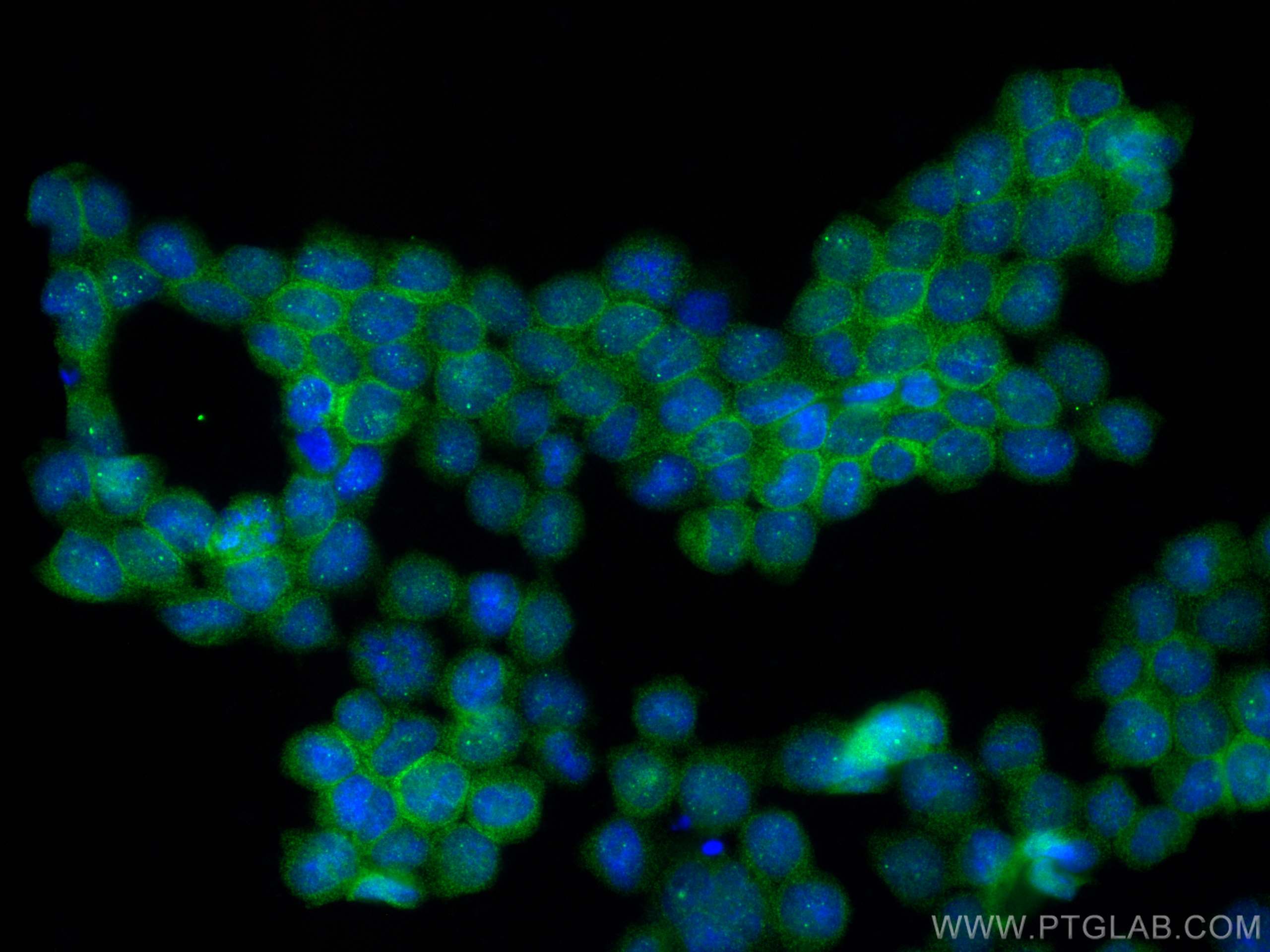Validation Data Gallery
Tested Applications
| Positive IF/ICC detected in | TF-1 cells |
Recommended dilution
| Application | Dilution |
|---|---|
| Immunofluorescence (IF)/ICC | IF/ICC : 1:500-1:2000 |
| It is recommended that this reagent should be titrated in each testing system to obtain optimal results. | |
| Sample-dependent, Check data in validation data gallery. | |
Product Information
83056-4-RR targets EPOR in IF/ICC, ELISA applications and shows reactivity with Human samples.
| Tested Reactivity | Human |
| Host / Isotype | Rabbit / IgG |
| Class | Recombinant |
| Type | Antibody |
| Immunogen | EPOR fusion protein Ag33956 相同性解析による交差性が予測される生物種 |
| Full Name | erythropoietin receptor |
| Calculated molecular weight | 55 kDa |
| GenBank accession number | NM_000121.4 |
| Gene Symbol | EPOR |
| Gene ID (NCBI) | 2057 |
| RRID | AB_3670782 |
| Conjugate | Unconjugated |
| Form | Liquid |
| Purification Method | Protein A purification |
| UNIPROT ID | P19235 |
| Storage Buffer | PBS with 0.02% sodium azide and 50% glycerol{{ptg:BufferTemp}}7.3 |
| Storage Conditions | Store at -20°C. Stable for one year after shipment. Aliquoting is unnecessary for -20oC storage. |
Background Information
Erythropoietin (EPO) receptor (EPOR) is a glycoprotein that belongs to the type I superfamily of single-transmembrane cytokine receptors. It consists of an extracellular domain that binds to the EPO ligand, a transmembrane domain and an intracellular domain. The interaction of EPO and EPOR triggers the activation of several signaling pathways that induce erythropoiesis, including JAK2/STAT5, PI3K/AKT, and MAPK (PMID: 34281163). EPOR is present on erythroid progenitor cells and has also been detected on a wide variety of non-hematopoietic cells (PMID: 36233351).
Protocols
| Product Specific Protocols | |
|---|---|
| IF protocol for EPOR antibody 83056-4-RR | Download protocol |
| FC protocol for EPOR antibody 83056-4-RR | Download protocol |
| Standard Protocols | |
|---|---|
| Click here to view our Standard Protocols |
